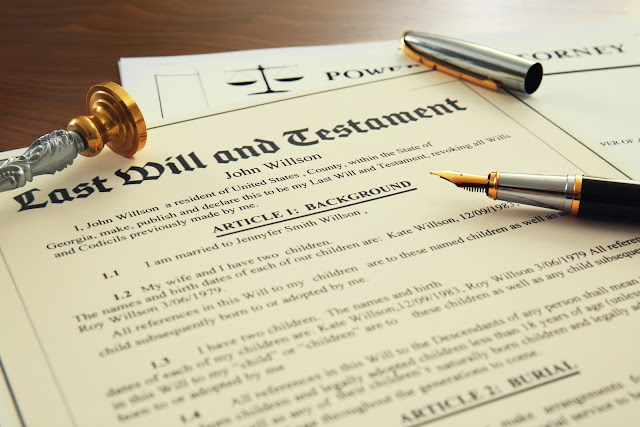Intestate succession refers to the legal process that determines how a deceased person's assets are distributed if they die without a valid Will. In Pennsylvania, intestate succession laws are designed to ensure that the deceased's estate is distributed fairly among their heirs. This article will provide an overview of Pennsylvania's intestate succession laws and explain how estate administration lawyers can assist in navigating this process.
What is Intestate
Succession?
When a person dies without a Will, their estate is considered
"intestate." Pennsylvania's intestate succession laws dictate how the
deceased's assets are distributed among their surviving relatives. The distribution
process is handled through probate
administration which involves validating the deceased's estate, paying-off
debts, and distributing the remaining assets according to state law.
Intestate
Succession Order in Pennsylvania
The order of inheritance in Pennsylvania follows a specific
hierarchy:
●
Spouse and Descendants: If the deceased is survived
by a spouse and children, the spouse typically receives the first $30,000 of
the estate and half of the remaining assets. The children receive the other
half.
●
Spouse and Parents: If there are no children,
but the deceased is survived by a spouse and parents, the spouse receives the
first $30,000 and half of the remaining estate. The parents receive the other
half.
●
Children Only: If there is no surviving
spouse, the children inherit the entire estate equally.
●
Parents Only: If there is no surviving
spouse or children, the parents inherit the estate equally.
● Siblings and Their Descendants: If there are no surviving spouse,
children, or parents, the estate goes to the siblings or their descendants.
Role of Estate
Administration Lawyers
Navigating intestate succession can be complex, particularly
when disputes arise among heirs or when the estate includes significant assets. Estate
Administration Lawyers play a crucial role in managing these challenges. They
ensure that the estate is administered according to state law and that the
deceased's wishes, as far as they can be determined, are honored.
Steps in Probate
Administration
Probate administration involves several key steps:
1. Filing the Petition: The process begins with filing a petition in the
appropriate court to open probate.
2. Appointing an Administrator: If there is no Will, the court
appoints an administrator to manage the estate.
3. Inventory and Appraisal: The administrator compiles a
detailed inventory of the deceased's assets and obtains appraisals as needed.
4. Paying Debts and Taxes: The estate's debts and any
applicable taxes are paid from the estate's assets.
5. Distributing the Assets: The remaining assets are
distributed to the heirs according to Pennsylvania's intestate succession laws.
Importance of
Professional Guidance
Working with an experienced estate planning law
firm
can provide invaluable assistance throughout the probate process. These
professionals ensure that all legal requirements are met and that the estate is
administered efficiently. Additionally, they can help mitigate potential
disputes among heirs and provide guidance on complex legal issues.
Benefits of
Having a Will
While intestate succession laws provide a framework for distributing
assets, having a valid Will offers numerous advantages:
●
Control Over Distribution: A Will allows you to
specify how your assets should be distributed, ensuring that your wishes are
honored.
●
Appointing a Guardian: If you have minor children,
a Will allows you to designate a guardian for their care.
● Minimizing Disputes: Clearly outlining your wishes in a Will can help
prevent disputes among your heirs.























